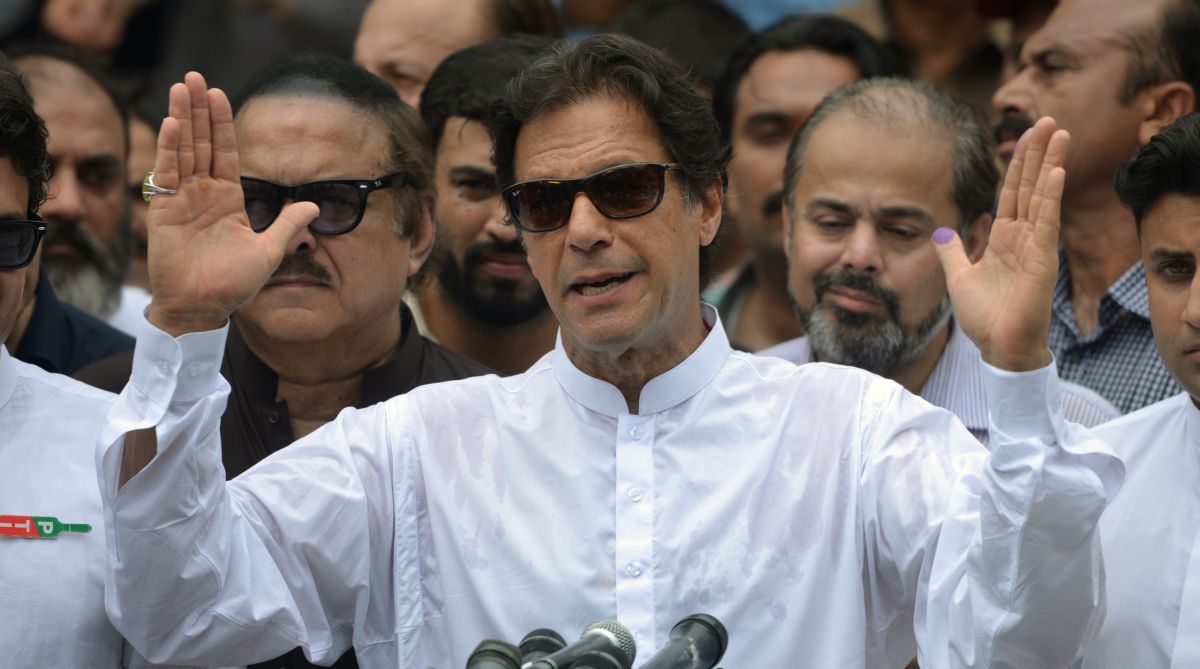True democracies around the world seem to be on the decline. Electoral democracies are increasingly becoming fraught with all kinds of unfair means.
The recent elections in Pakistan and Zimbabwe have come under serious criticism and their credibility has been questioned. Earlier this year the elections in Egypt, Russia, Colombia, Venezuela and several others have not been able to rise above censure.
Advertisement
Denial of basic human rights by ruling coteries have given rise to questions about their legitimacy in power. That has triggered violence against ruling cliques in many countries. But the ruling class usually can continue in power if it enjoys the backing of the armed agencies of the state.
The US election in 2016 has produced a leader who is not a politician, does not believe in the principles of the Republican Party, yet fought the presidential election as a candidate of that party despite stiff opposition from top Republicans.
Despite getting three million more votes, Hillary Clinton (65 million) lost to Donald Trump (62 million), because the Electoral College gave Trump 304 votes against 227 of Clinton. This anomaly in the electoral system of America is intriguing. The Economist in its Democracy Index (2017) described the American political system as a “flawed democracy”.
India, described as the largest democracy in the world, also has serious electoral flaws. The corrosive influence of money plays a decisive factor on the minds of majority of voters (815 million, 2014), who are poor and illiterate. The source of these funds spent on elections is unknown according to the Association of Democratic Reform.
.Of the sources that are known a major part of the funds comes from the corporate houses. ADR also identified the other more alarming characteristic of the Indian Lok Sabha – that 30 percent of the candidates have criminal cases against them. The BJP-led government has also given into majoritarian assertiveness disregarding the basic rights of minority communities.
The recent election in Pakistan has been seriously criticised for interference from the military. Judicial activism led to the disqualification of leading political leaders from the electoral race. The election has produced a hung parliament requiring Imran Khan to cobble together a tenuous coalition government to get majority in the Parliament of 340 seats.
Loud questions have been raised whether this cricketer-turned-politician will be able to deliver with a corruption ridden administration in the militant infested country. Overseas election observers have raised issues of flaws in the electioneering process.
In late June 2018, the Presidential election in Turkey returned incumbent Recep Tayyip Erdogan. Turkey which was seen as a Muslim democracy has now converted into an authoritarian state giving Erdogan massive presidential powers.
The presidential election in Zimbabwe in late July 2018 also came under international criticism for the violence that led to several deaths. The violence was attributed to the absence of a level playing field in which the ZANU-PF candidate Emmerson Mnangagwa won defeating the Movement for Democracy leader Nelson Chamisa. Ousted Robert Mugabe’s ZANU-PF has a stranglehold on power.
The Presidential election in Egypt in March 2018 was even more heavyhanded. Only one candidate was allowed to run for the presidency along with incumbent General Abdel Fatah Al- Sisi, who overthrew the democratically elected government of Mohammed Morsi in July 2013. The media was strangled and all shades of Muslim Brotherhood candidates were effectively kept at a distance.
Nearer home, Thailand had seen the back of democracy in 2014, when the elected Prime Minister Yingluck Shinawatra was removed from office by the Constitutional Court and replaced by General Prayut Chan-o-Cha, leader of the military coup in May 2014.
There are questions whether Russia is a democracy. The Economist Intelligence Unit describes Russia as “authoritarian”. Others have labelled it as “hybrid regime” and “fake democracy”.
In South America there are several examples of democracies turning to dictatorships. Oil-rich Venezuela under Hugo Chavez (1999-2013) mismanaged its economy leading to a state of total penury. Nicolas Maduro, who was reelected as President in May 2018, has not able to stem the tide of economic decline and with a runaway inflation the country now faces total economic meltdown. It is a classic case of a democracy taken over by authoritarian left-leaning leaders.
With the exception of Nordic countries, the list of democratic societies turning authoritarian is long. Democracy means a system in which the majority opinion rules. As free and fair election allows voters to bring about changes in governance peacefully, it has become an inseparable part of democratic systems. It is an effective alternative to violence whereby a government can be changed.
Freedom House identifies four minimum criteria that are required for a state to be considered an electoral democracy: i) a competitive, multiparty political system; ii) universal adult suffrage for all citizens; iii) regularly contested elections conducted with ballot secrecy, ballot security, absence of voter fraud, yield results that reflect popular public will; iv) access of political parties to the electorate through free media and through open political campaigning. However, it is difficult to find all four working in most countries. In liberal democracies all the basic human rights are ensured including free and fair elections.
One of the major threats to democracy is corruption of the ruling coterie. It undermines state institutions creating widespread anger among the masses. The recent Malaysian election is a case in point; it evicted powerful Najib Razak and brought back Mahatir Mohammed to power. Fear of incarceration leads corrupt leaders to become authoritarian – encourage vote-rigging and election violence by its cadres to stay in power.
According to the Economist Intelligence Unit the average global score of Democracy Index fell to 5.48 in 2017 from 5.52 in 2016. Democracy declined in 89 countries, while it stagnated in 57 countries in 2017 as compared to 2016. Today more than 2.6 billion people of the world live under autocratic rule. Indeed Samuel P Huntington’s the third wave of democratisation (1974-1990) is now in recession.
The Daily Star/ANN.











